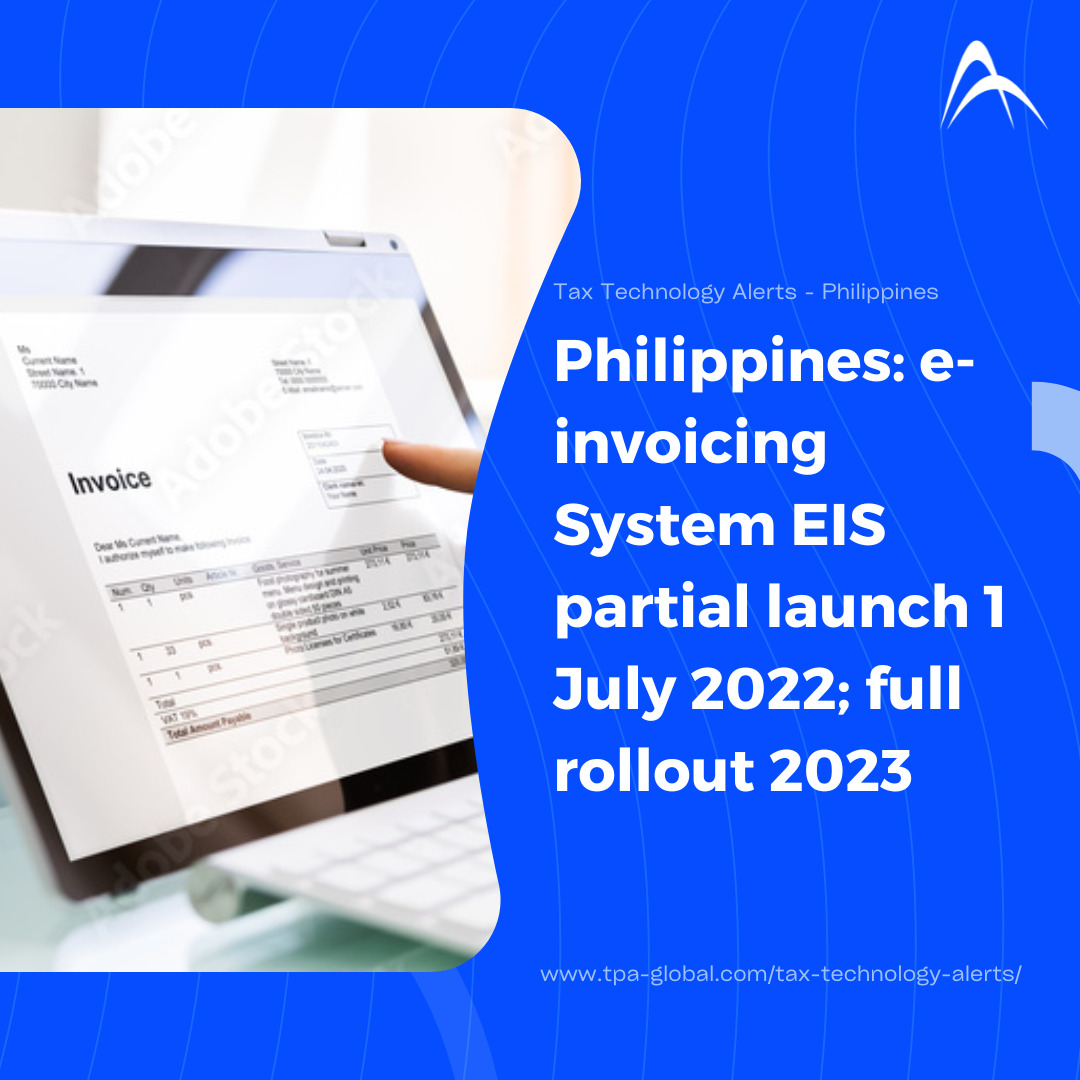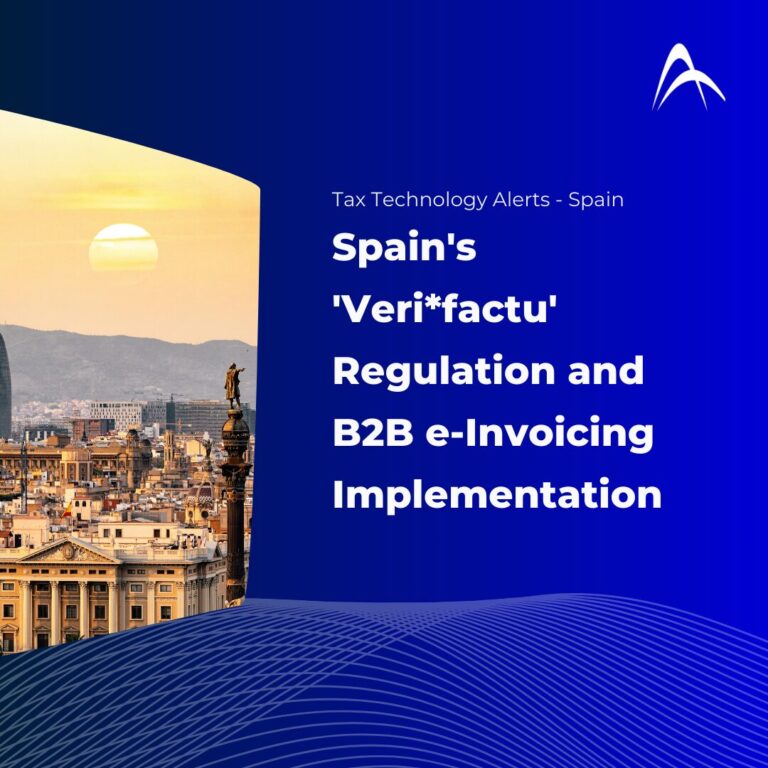Type: Legislation
The Philippines Bureau of Internal Revenue (BIR) began a small pilot e-invoicing program in early April, with the participation of the country’s largest businesses. The goal is to implement the Tax Reform for Acceleration and Inclusion Act (TRAIN) Act for around 100 large taxpayers by July 1, 2022. Not a pre-clearance e-invoicing model, the Philippines system is based on a live listing of transactions being transmitted to the authorities. Digital signatures are used to create invoices, which are then sent to the authorities in JSON format. There is no need to obtain pre-approval.
The BIR is considering a live transmission model similar to the e-Tax invoice used in South Korea. The Electronic Invoicing System (EIS) will most likely be the name, and it will be implemented by February 2022 after a trial period. This will be split into two sections:
- EIS invoice accreditation and invoice transmission system
- BIR back-end for tax authorities
The following categories of transactions will be mandated to use e-invoice:
- e-commerce
- Large tax payers
- Exporters
Effective date: 1 July 2022



